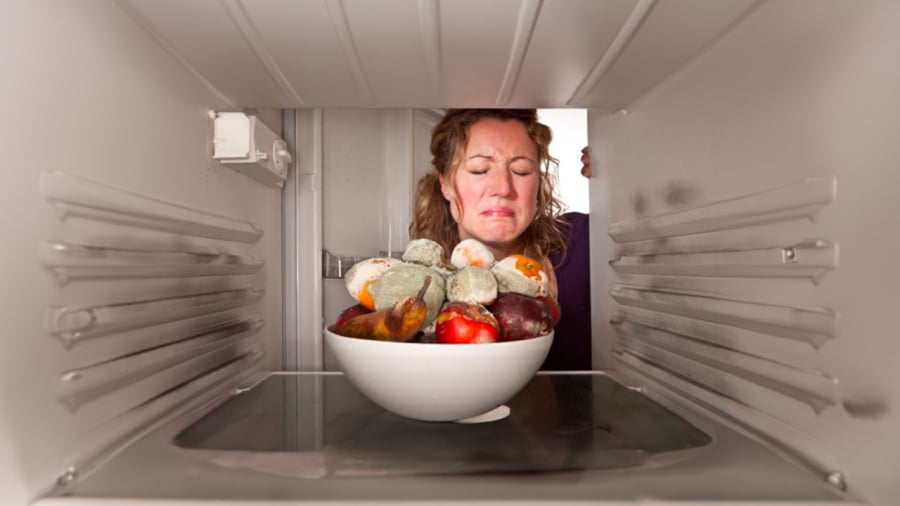Strange smell in food
This sign is very noticeable, especially when the food is spoiled. If you smell a strange odor when you open the refrigerator, check immediately where it comes from and remove it in time.
The US Department of Agriculture (USDA) states that these odors come from volatile organic compounds released by bacteria feeding on leftover food stored in the refrigerator for a long time. With perishable foods stored at room temperature, if there is a strange smell, it means they are spoiled. It’s best to throw them away, don’t hesitate to eat them again, or you might get sick.

Foods with slimy texture
If the surface of the food has a slimy texture, it indicates that it is heavily spoiled. Some vegetables, if too soft and slimy, should also be discarded.
Recent studies have shown that the slime on food is a clear sign of bacterial growth. If you still try to eat it, the consequences for your health will be very bad.
Strange texture of food
Meat after defrosting must not be sticky, mushy, or have a foul smell. If you notice such phenomena in the meat, you should discard it immediately to ensure your health.
A study in the Journal of Food Science shows that changes in the texture of food are due to the impact of moisture. From there, it affects the quality, taste, and also carries a lot of harmful bacteria.

Sour food
Sour food often appears when bacteria or fungi cause the fermentation process, converting sugars into acids. It not only changes the taste and smell of the food but also creates an ideal environment for the growth of harmful bacteria. Once sour, food can lead to a decrease in food quality and safety.
The sour taste of spoilage can increase the risk of blood sugar-related diseases, especially for people with diabetes. In addition, consuming sour food can cause nausea, diarrhea, and other digestive problems.

Moldy food
Most types of mold are harmful to health. If you see mold on food, especially bread or fruit, you should definitely throw it away. The World Health Organization (WHO) warns that some types of mold produce toxins, even causing cancer.
In addition, eating moldy food can cause digestive problems. Some molds often have irritants to the intestines, leading to issues such as diarrhea, abdominal pain, and indigestion. Many people may have allergic reactions to mold, causing symptoms such as rash, itching, or difficulty breathing.

































